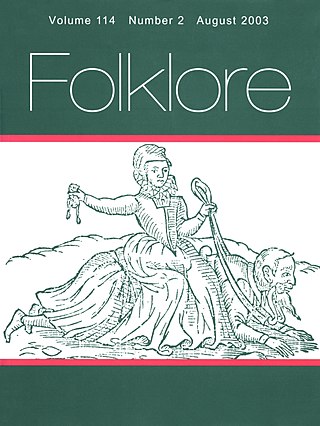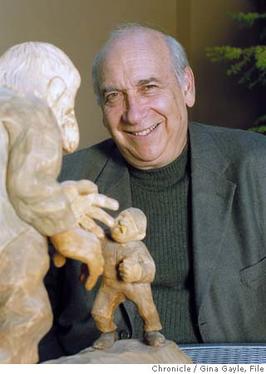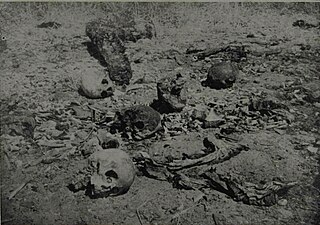
Folklore is the whole of oral traditions shared by a particular group of people, culture or subculture. This includes tales, myths, legends, proverbs, poems, jokes, and other oral traditions. They include material culture, such as traditional building styles common to the group. Folklore also includes customary lore, taking actions for folk beliefs, and the forms and rituals of celebrations such as Christmas, weddings, folk dances, and initiation rites. Each one of these, either singly or in combination, is considered a folklore artifact or traditional cultural expression. Just as essential as the form, folklore also encompasses the transmission of these artifacts from one region to another or from one generation to the next. Folklore is not something one can typically gain from a formal school curriculum or study in the fine arts. Instead, these traditions are passed along informally from one individual to another, either through verbal instruction or demonstration. The academic study of folklore is called folklore studies or folkloristics, and it can be explored at the undergraduate, graduate, and Ph.D. levels.

Hillbilly is a term for people who dwell in rural, mountainous areas in the United States, primarily in the Appalachian region. As people migrated out of the region during the Great Depression, the term spread northward and westward with them.

A lightbulb joke is a joke cycle that asks how many people of a certain group are needed to change, replace, or screw in a light bulb. Generally, the punch line answer highlights a stereotype of the target group. There are numerous versions of the lightbulb joke satirizing a wide range of cultures, beliefs, and occupations.

A joke is a display of humour in which words are used within a specific and well-defined narrative structure to make people laugh and is usually not meant to be interpreted literally. It usually takes the form of a story, often with dialogue, and ends in a punch line, whereby the humorous element of the story is revealed; this can be done using a pun or other type of word play, irony or sarcasm, logical incompatibility, hyperbole, or other means. Linguist Robert Hetzron offers the definition:
A joke is a short humorous piece of oral literature in which the funniness culminates in the final sentence, called the punchline… In fact, the main condition is that the tension should reach its highest level at the very end. No continuation relieving the tension should be added. As for its being "oral," it is true that jokes may appear printed, but when further transferred, there is no obligation to reproduce the text verbatim, as in the case of poetry.

A proverb is a simple, traditional saying that expresses a perceived truth based on common sense or experience. Proverbs are often metaphorical and use formulaic language. A proverbial phrase or a proverbial expression is a type of a conventional saying similar to proverbs and transmitted by oral tradition. The difference is that a proverb is a fixed expression, while a proverbial phrase permits alterations to fit the grammar of the context. Collectively, they form a genre of folklore.
A nickname or short name is a substitute for the proper name of a person, place or thing. It is commonly used to express affection, amusement, a character trait or defamation of character. It is distinct from a pseudonym, stage name or title, although the concepts can overlap. Also known as sobriquet, it is typically informal.
The Dozens is a game played between two contestants in which the participants insult each other until one of them gives up. Common in African-American communities, the Dozens is almost exclusively played in front of an audience, who encourage the participants to reply with increasingly severe insults in order to heighten the tension and consequently make the contest more interesting to watch.

An insult is an expression, statement, or behavior that is often deliberately disrespectful, offensive, scornful, or derogatory towards an individual or a group. Insults can be intentional or unintentional, and they often aim to belittle, offend, or humiliate the target. While intentional insults can sometimes include factual information, they are typically presented in a pejorative manner, intended to provoke a negative emotional response or have a harmful reaction effect when used harmfully. Insults can also be made unintentionally or in a playful way but could in some cases also have negative impacts and effects even when they were not intended to insult.
Blonde jokes are a joke cycle based on a stereotype of a dumb blonde woman.

A football chant or terrace chant is form of vocalisation performed by supporters of association football, typically during football matches. Football chanting is an expression of collective identity, most often used by fans to express their pride in the team or encourage the home team, and they may be sung to celebrate a particular player or manager. Fans may also use football chants to slight the opposition, and many fans sing songs about their club rivals, even when they are not playing them. Sometimes the chants are spontaneous reactions to events on the pitch.

Flyting or fliting, is a contest consisting of the exchange of insults between two parties, often conducted in verse.

Folklore studies is the branch of anthropology devoted to the study of folklore. This term, along with its synonyms, gained currency in the 1950s to distinguish the academic study of traditional culture from the folklore artifacts themselves. It became established as a field across both Europe and North America, coordinating with Volkskunde (German), folkeminner (Norwegian), and folkminnen (Swedish), among others.
Ching chong and ching chang chong are ethnic slurs used to mock or imitate the Chinese language, people of Chinese ancestry, or other people of East Asian descent perceived to be Chinese. The term is a derogatory imitation of Mandarin and Cantonese phonology. The phrases have sometimes accompanied assaults or physical intimidation of East Asians, as have other racial slurs or imitation Chinese.

Alan Dundes was an American folklorist. He spent much of his career as a professional academic at the University of California, Berkeley and published his ideas in a wide range of books and articles.
The culture of Yorkshire has developed over the county's history, influenced by the cultures of those who came to control/settle in the region, including the Celts, Romans, Angles, Vikings, Normans and British Afro-Caribbean windrush generation communities from the 1950s onwards. Yorkshire people are said to have a strong sense of regional identity and have been viewed to identify more strongly with their county than their country. The Yorkshire dialect and accent is distinctive, although use of Old Norse and dialect words is stagnant; the Yorkshire Dialect and accents are seen by non-native speakers as trustworthy, friendly & linguistically prestigious.

Sardarji jokes or Sardar jokes are a class of ethnic jokes based on stereotypes of Sikhs. Although jokes about other ethnic and linguistic communities are found in various regions of India, Sardarji jokes are the most widely circulated ethnic jokes and found across the country. Sardarji jokes are generally considered tasteless and inappropriate by members of the Sikh community, and have elicited protests as well as leading to arrests for hurting religious sentiments.
A "Polish joke" is an English-language ethnic joke deriding Polish people, based on derogatory stereotypes. The "Polish joke" belongs in the category of conditional jokes, whose full understanding requires the audience to have prior knowledge of what a "Polish joke" is. As with all discriminatory jokes, "Polish jokes" depend on the listener's preconceived notions and antipathies.
Hori is an ethnic slur used against people of Māori descent. The term comes from a Māori-language approximation of George, an English name that was very popular during the early years of European colonisation of New Zealand. By means of synecdoche, the term came to be ascribed firstly to any unknown male Māori and then as a negative epithet to all male Māori.

Sheep-shagger is a derogatory term, most often used to refer to Welsh people, implying that the subject has sex with sheep. In a court case in Britain, the use of the term directed at a Welsh person was ruled to be a "racially aggravating" factor in a disorderly conduct offence. It has been used in South Africa to refer to Australians and by Australians and New Zealanders to refer to one another.













